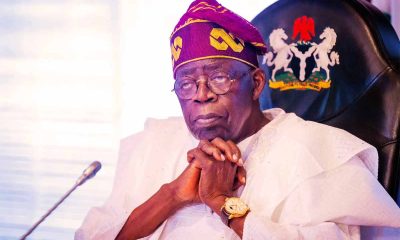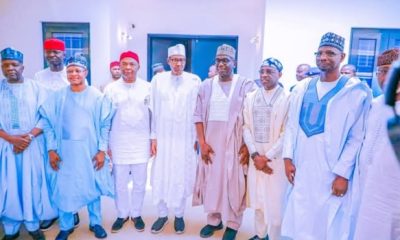News
Obasanjo blames Buhari for poor economy, says coup leaders unlikely to leave soon
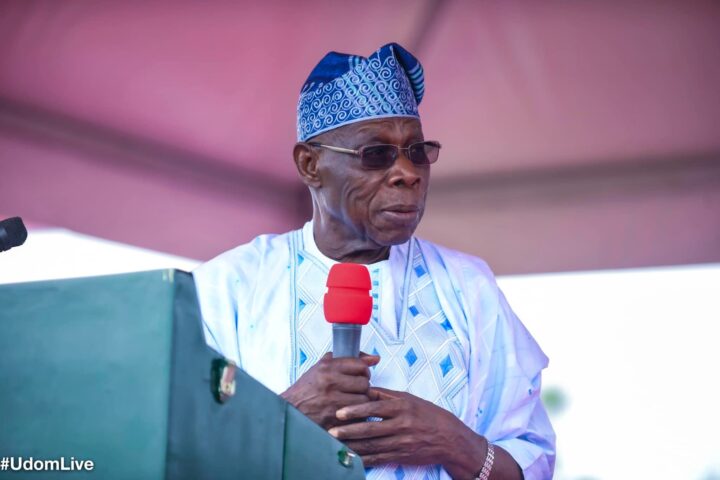
Obasanjo blames Buhari for poor economy, says coup leaders unlikely to leave soon
Former President Olusegun Obasanjo has attacked the administration of former President Muhammadu Buhari over the poor state of the Nigerian economy.
He also warned that the liberal system from the Western countries would not help Africa and expressed fear that coup leaders seizing power might stay for a generation.
He spoke on these issues in an interview with TheCable.
Obasanjo said, “Buhari was spending money recklessly. I know Buhari didn’t understand economics. I put that in my book. But that he could also be so reckless, I didn’t know. Who would you go to today and ask for a favour?
“Tinubu said the other day that it was unacceptable that he would spend 90% of his revenue to service debts. I wasn’t spending 90% when I went worldwide to get debt relief. Do you think that anybody would give you debt relief today?
“Tinubu says he has trimmed the number of people attending the United Nations General Assembly. Is that news? He will meet with Justin Trudeau, and he will meet with Emmanuel Macron. That will not solve any problem.”
When asked to comment on increasing era of military coups in Africa, Obasanjo described it as a new phenomenon in Africa.
He also insisted that the liberal democracy copied from Western countries would not work in Africa.
He said, “In 2021, when Col Mamady Doumbouya overthrew President Alpha Condé of Guinea, I recall that I travelled to Conakry. I spent two nights there. The coup leader didn’t want to meet with me because he didn’t know what I would say. They said he was out of town, which was not true. But I met every other important government official. I met his No 2 and his speaker.
“I listened to them and concluded that we had a new phenomenon on our hands. I realised that they had the support of the youths and were not thinking of staying in power for four, five years years. They are in for a generation.
“When I noticed this, I went to Addis Ababa to meet the chairperson of the African Union Commission, Moussa Faki Mahamat. I told him that maybe he had not seen what I was seeing. That I saw this in Guinea Conakry. He said I was talking about Guinea Conakry; what about his own country, Chad? He said Burkina Faso, Mali, Guinea Conakry, and Chad were thinking the same way and they were connected.
“I said that was a new phenomenon in Africa. I said I was the one who in 1999 advocated that if you are not a government backed by the constitution, you should be suspended from the African Union, and these chaps don’t even mind any suspension.
“I told him that all the instruments we had used in the past would not work and asked what he would do about it. He told me about his challenges, especially with his country.
“So we have a situation where we have a continent where we have to rethink democracy. The liberal democracy we are copying from settled societies in the West won’t work for us.”
News
Libya nabs three Nigerians over drug trafficking

Libya nabs three Nigerians over drug trafficking
The Samnu Police Department in southern Libya detained three Nigerians for drug trafficking.
According to a statement issued by Migrant Rescue Watch on X (previously Twitter) on Sunday, the suspects were apprehended carrying a quantity of hashish that officials believe was meant for sale.
The arrests were made during a targeted operation in the town of Samnu, Murzuq region, which is known for smuggling and human trafficking due to its proximity to Libya’s southern borders.
READ ALSO:
- EFCC arrests 36 suspected internet fraudsters
- Obama reacts as Trump freezes $2.3b Harvard University funding
- Peter of P-square testifies against brother in fraud case
This operation is part of a larger security effort to combat drug-related crimes and cross-border trafficking of migrants.
The suspects’ identities have not yet been made public. Authorities acknowledged that the case had been turned over to the public prosecutor for further investigation and judicial action.
The statement said. “Samnu Police Dept. arrested 3 #migrants of Nigerian nationality on charges of drug trafficking. The trio were found in possession of a quantity of hashish earmarked for sale. The case was referred to public prosecution.”
Libya nabs three Nigerians over drug trafficking
News
NIS expands contactless passport renewal to United States, others

NIS expands contactless passport renewal to United States, others
The Nigeria Immigration Service (NIS) has announced the expansion of its Contactless Biometric Passport Application System to several countries in the Americas.
In a recent statement by ACI AS Akinlabi, Service Public Relations Officer at NIS Headquarters in Abuja, confirmed that the service under Comptroller General Kemi Nandap is rolling out the next stage of implementation across Brazil, the United States, Mexico, and Jamaica this month.
The contactless system, which enables Nigerians living abroad to renew their travel document without physically visiting passport offices for biometric enrollment, went live in the United States on April 11. Mexico, Brazil and Jamaica are scheduled to gain access on April 14.
READ ALSO:
- I don’t have a second wife or family – Super Eagles striker Brown Ideye
- OAU student electrocuted while retrieving football from nearby compound
- Bomb blast: Senator Ndume visits victims at hospital, offers financial support
“This expansion represents our commitment to innovative and efficient service delivery to Nigerians anywhere in the world,” said ACI AS Akinlabi, Service Public Relations Officer at NIS Headquarters in Abuja.
The application system is currently available on the Google Play Store as “NIS Mobile” and allows passport renewal without in-person biometric enrollment. An iOS version for Apple devices is under development and will be released soon, alongside an enhanced version of the Android app to improve user experience and accessibility.
The NIS further confirmed that the Contactless Passport App is now operational in Canada, the USA, Mexico, Jamaica, Brazil, Europe, and Asia. Australia and Nigeria itself remain pending, with implementation dates to be announced in the future.
NIS expands contactless passport renewal to United States, others
News
Tariff: NACCIMA warns against economic instability, job losses
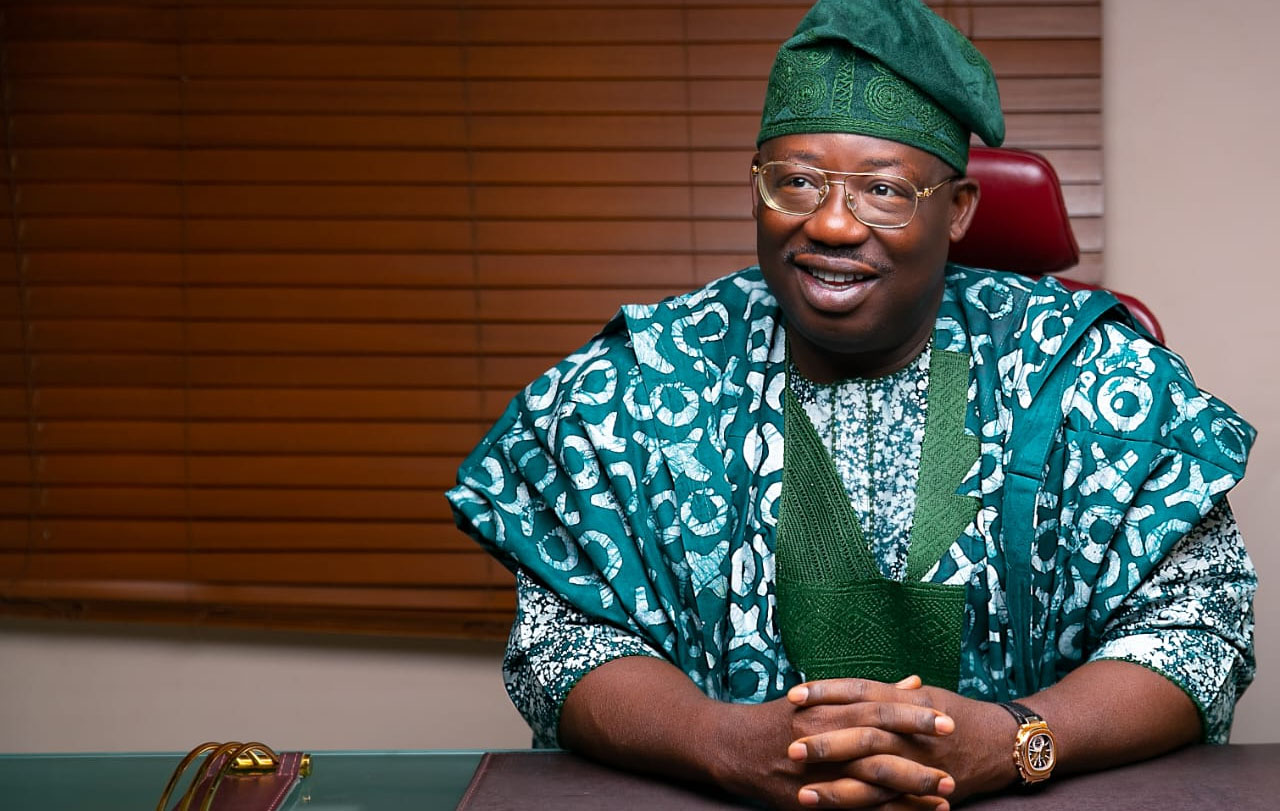
Tariff: NACCIMA warns against economic instability, job losses
The Nigerian Association of Chambers of Commerce, Industry, Mines, and Agriculture (NACCIMA) has expressed fear that unless the Federal Government takes deliberate steps to increase Nigeria’s non-export earnings, the current global tariff war may lead to job losses, low foreign exchange inflow, and economic instability.
This was the position of the President of NACCIMA, Dele Oye, as the chairman at the Vanguard Economic Discourse 2025 with the theme, “Nigeria’s Economic Outlook 2025: Hardship and Pathways to Sustainable Recovery”, held last week in Lagos.
Among other things, Oye who is also the Chairman of the Organised Private Sector of Nigeria (OPSN), emphasized the need for a viable and affordable homegrown democracy.
His words: “In this pivotal moment, we must recognize and confront the significant challenges before us—challenges that have been magnified by the advent of America’s “America First” policy.
READ ALSO:
- Portable arrested over alleged defamation against Osupa
- Varsity strike looms as NASU alleges secret ASUU-FG deal on allowance
- Despite trade spat with US, China exports rises 12.4%
“This paradigm shift in global trade, driven by protectionism and tariffs, presents a unique and formidable array of obstacles for developing nations such as ours.
“The world we once knew, one characterized by cooperative, rules-based trading systems under the World Trade Organization, has given way to an environment fraught with uncertainty. This transformation not only disrupts global markets and supply chains but poses an acute threat to our competitive standing in international trade.
“The recent implementation of a 14% tariff on Nigerian exports to the United States directly jeopardizes what has historically been a critical market for our key goods, including crude oil, liquefied natural gas, and agricultural products. “The ripple effects of reduced demand could precipitate job losses, economic instability, and a decline in vital foreign exchange inflows, particularly for our non-oil sectors”.
“Indeed, the ramifications of current U.S. policies go beyond tariffs. We are witnessing a significant decrease in funding for initiatives that empower Africa’s burgeoning start-ups. The $51 million cut from the United States Development Fund, which affects countries like Nigeria and Kenya, exemplifies the broader challenges we face. The grants previously allotted to our SMEs are critical for nurturing innovation and entrepreneurship within our local economies”.
In the face of these challenges, Oye said Nigeria must act decisively and strategically to reshape its economic destiny where adversity can give rise to opportunity.
Tariff: NACCIMA warns against economic instability, job losses
-

 Business2 days ago
Business2 days ago5 facts about trending digital trading platform, CBEX
-

 Insurance1 day ago
Insurance1 day agoLasaco Assurance attains ISO/IEC 27001:2022 certification for information security management
-
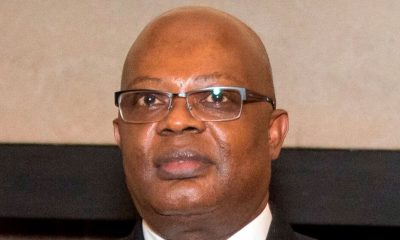
 metro3 days ago
metro3 days agoRivers administrator demands N300m refund from NBA after relocating conference
-
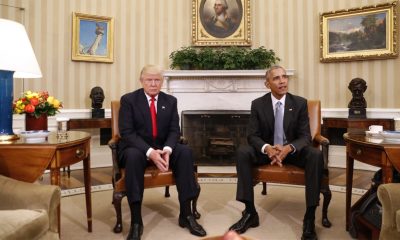
 International2 days ago
International2 days agoObama reacts as Trump freezes $2.3b Harvard University funding
-

 Politics3 days ago
Politics3 days ago2027: PDP governors reject alliance of opposition parties
-

 metro2 days ago
metro2 days agoBREAKING: Court strikes out defection suit against 27 pro-Wike Rivers lawmakers
-
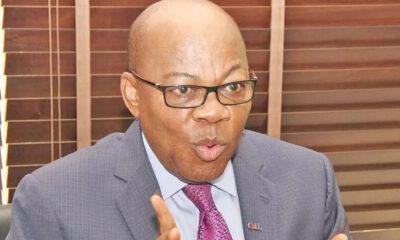
 metro2 days ago
metro2 days agoNatasha’s allegation against Akpabio has contradictions – Agbakoba
-

 Politics1 day ago
Politics1 day agoNNPP lawmakers seek to rejoin APC after fallout with Kwankwaso

